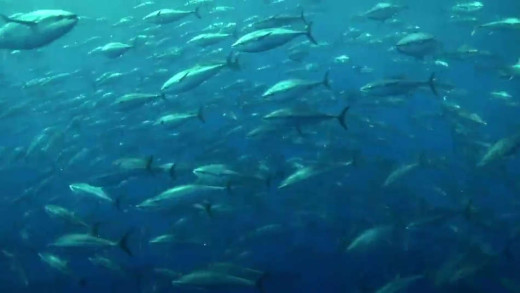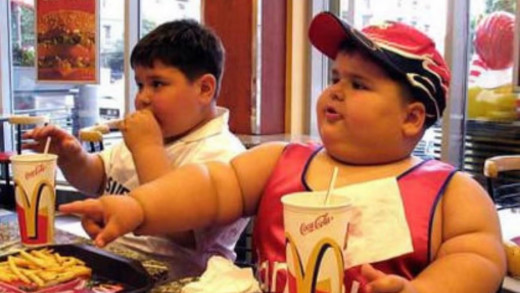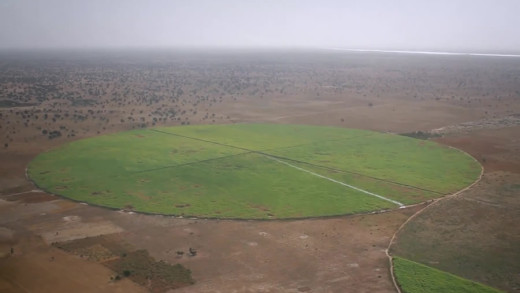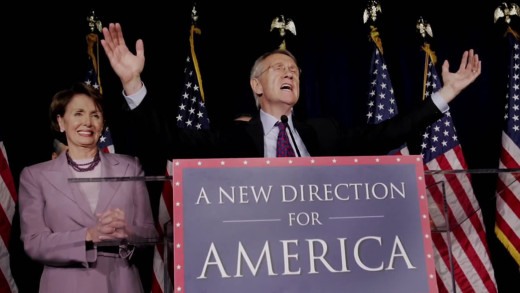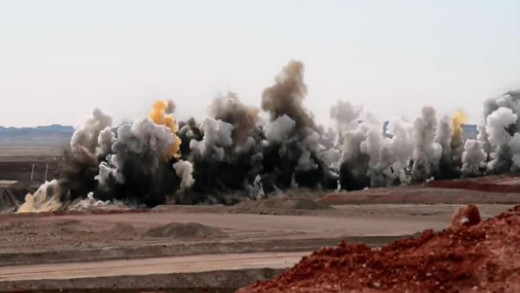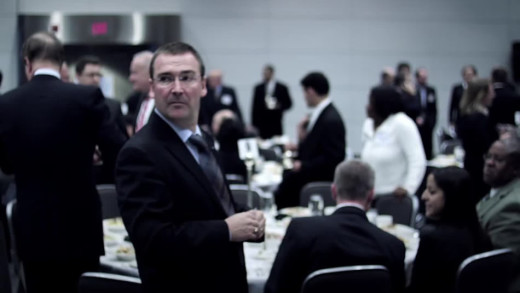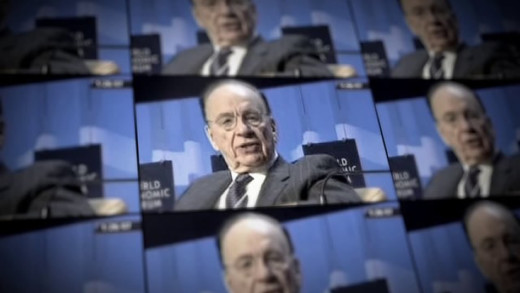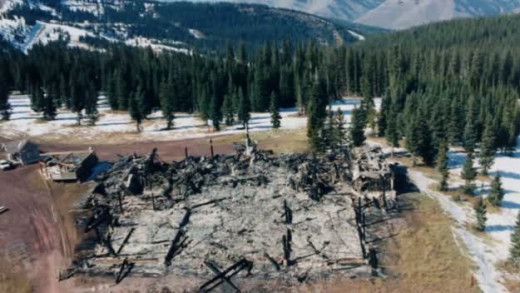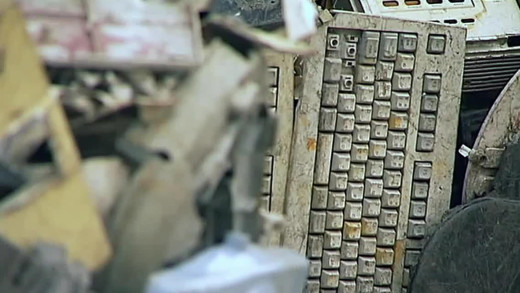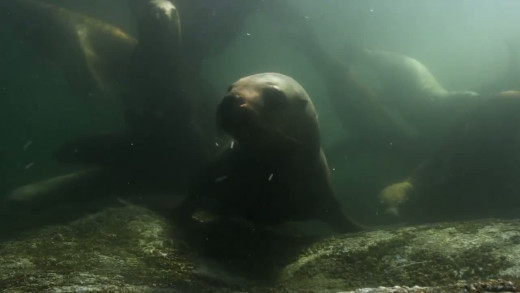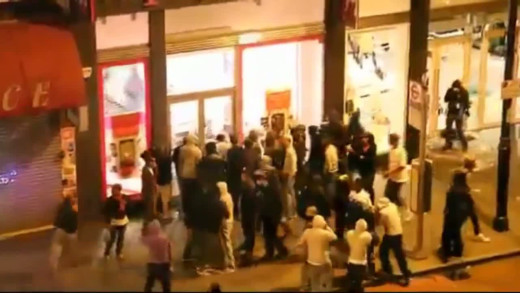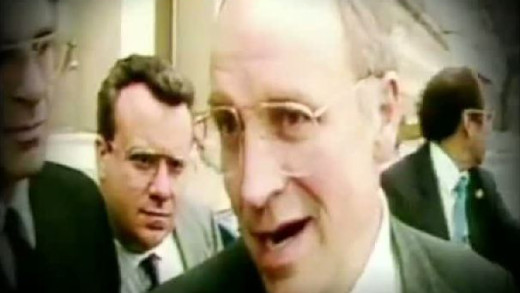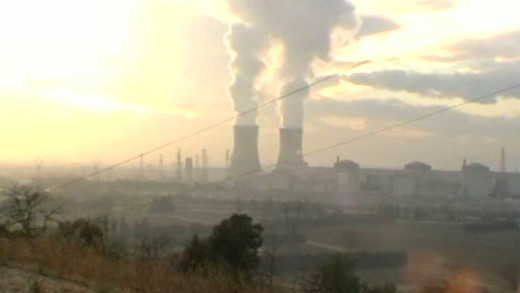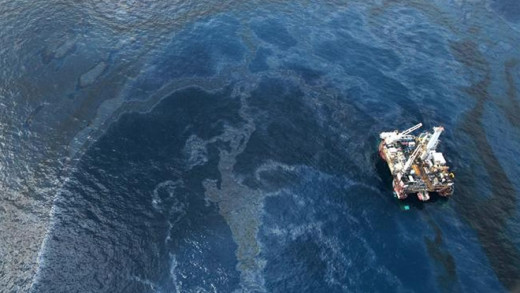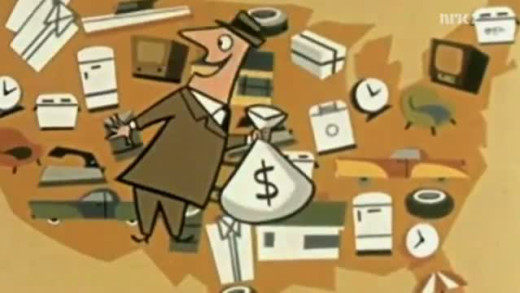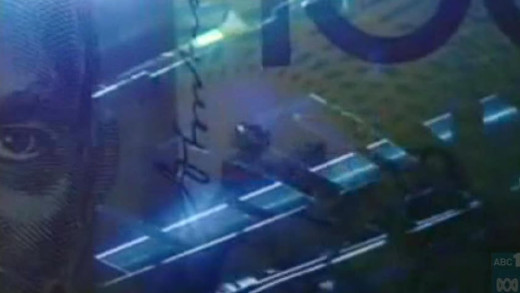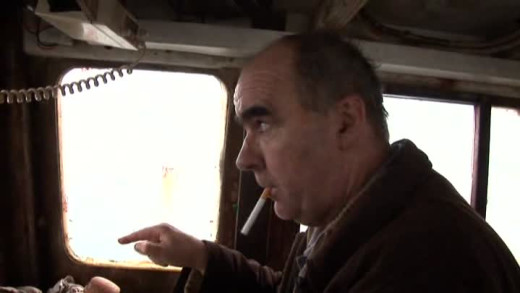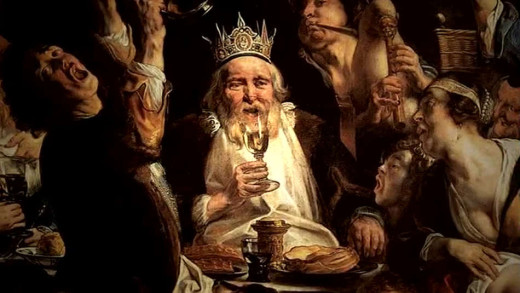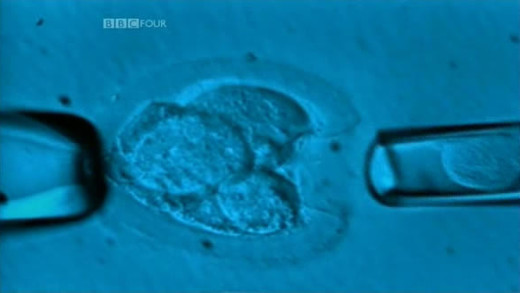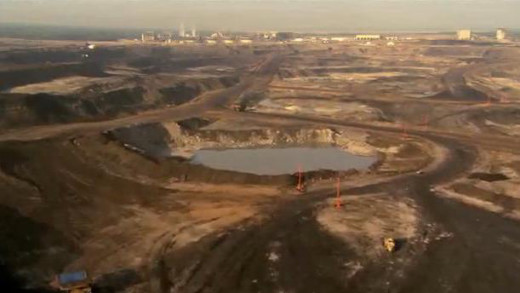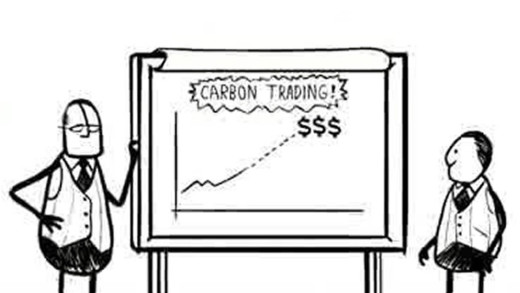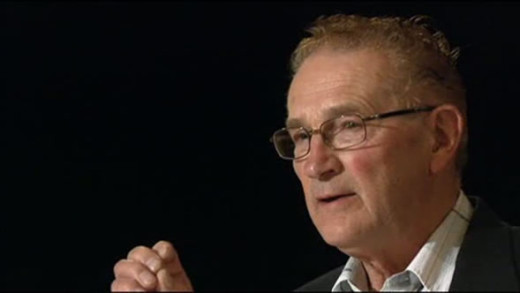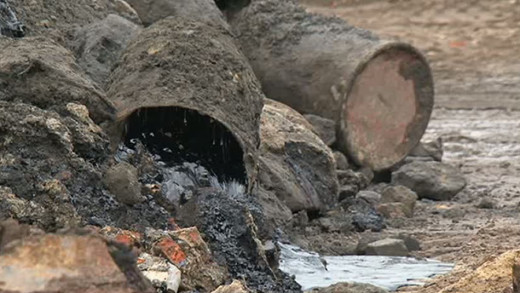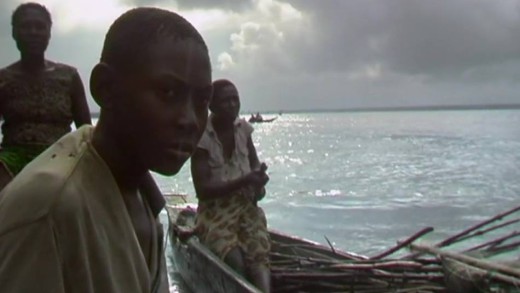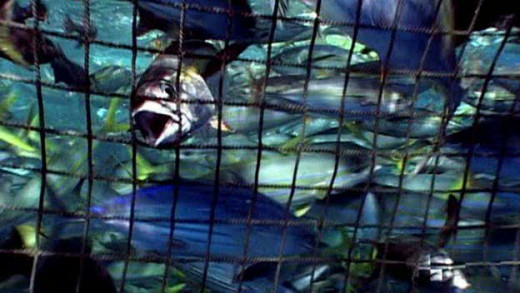Decades of over-fishing by the global tuna industry have now pushed the final frontiers to the waters of Papua New Guinea. In the 1950s, commercial fishing was extracting 400,000 tons of tuna from the ocean. This number is now close to 4 million tons. And it comes at a high cost: a human one, now affecting the last places on Earth to receive the full impact of globalisation. Set in "the land of the unexpected," in the north-eastern part of Papua New Guinea, Canning Paradise follows the struggle of Indigenous tribes to protect their way of life, guarded by traditions dating back since the beginning of time. While many have lost hope, others are fighting for survival from the corrupt government and the omnicidal dominant culture.
Globesity exposes the explosion of global obesity by following how fast food corporations have infiltrated countries where just a few decades ago hunger was a headline health concern. The film travels to China where the consumption of sugar has skyrocketed, to Brazil where corporations such as Nestlé have fundamentally altered traditional diets, to India where it’s predicted that 100 million people will be suffering diabetes in the not-too-distant future, and on to Mexico--the biggest consumer of soft drink in the world--where diabetes is already the number one killer. The film is one illustration of many of how vast corporate operations further destroy traditional communities and usurp basic needs like food...
Rich, land-hungry nations like China and Saudi Arabia are rushing to Mali, West Africa, to grab up land for large agribusiness investments. Malian peasants do not welcome these developments however, seeing this as yet another manifestation of imperialism. Indeed local farmers themselves are being forced off the land by their own governments to allow foreign interests in, promising large sums of money. Land titles are denied, lands are cleared and families moved on. Though as Mali experiences a military coup and developers are frightened off, the situation improves for local farmers...
Exploring the collusion between the richest people in the United States and the figureheads of political power in government, this film focuses on Park Avenue in New York which is currently the home to the highest concentration of billionaires in the United States. Across the river in Manhattan, less than five miles away, Park Avenue runs through the South Bronx which is home to the countries' poorest. The disparity of wealth has never been so stark and has accelerated extraordinarily over the last 40 years. As of 2010, 400 people controlled more wealth than the bottom 50 percent of the population—150 million people—as well as seizing political power. Park Avenue travels through this to illustrate why the concept of so-called "upward mobility" is a myth perpetuated by the rich, and also to unpack the workings of plutocracy and capitalism—the current-day rule by the rich, and the implications of this collusion of power and control.
Mongolia is the next target for the world's biggest mining corporations for copper. The Oyu Tolgoi mine currently under construction in the South Gobi Desert is a combined open-pit and underground mine due to start extraction in the next few months of 2012. But the problems don't end there. The Oyu Tolgoi deal between the Mongolian government and the massive Australian mining company Rio Tinto is truly indicative—Mongolia gets just 34 percent, while Rio Tinto is exempt from a profits tax and receives open access to scarce desert aquifers and the provisioning of water to people living close to land that the mining company now claims to own. The Big Dig documents how this avaricious mining-driven culture comes at the expense of the natural world and the way of life of local communities.
Brussels, the capital and largest city of Belgium, has a long history of hosting the institutions of the European Union within its European Quarter; while the Union itself claims it has no capital and no plans to declare one--despite the fact that Brussels hosts the official seats of the European Commission, Council of the European Union, and European Council, as well as a seat of the European Parliament. In any event, it is here--in this centre of smoke and mirrors--that exists one of the largest concentrations of lobbyist power in the world. The Brussels Business scratches the surface of this extensive world hidden-from-view by looking at the direct influence of lobbyists and the complete lack of transparency in the decision-making processes. Speaking with lobbyists and activists themselves, The Brussels Business reveals the beginnings of a vast landscape of PR conglomerates, front companies, think-tanks and their closely-interlinking networks of power and ties to political and economic elites. The questions then become: Who actually runs the European Union? How? And why?
Ninety percent of American media is controlled by five big, for-profit-conglomerates, creating a media monopoly of informational and social control never before possible. The overwhelming collective power of these firms raises troubling questions about democracy. Using a handful of in-depth cases out of a vast array of examples, speaking with renowned journalists, activists, and others, Shadows of Liberty reveals the hidden machinations of the news media, drawing into focus the vast mechanisms of censorship, cover-ups, and corporate control that have been built up over many decades. Journalists are prevented from pursuing controversial news stories, people are censored for speaking out against abuses of government power, and individual lives are shattered as the arena for public expression has been turned into a vessel for advertising, warmongering and distraction. Will the Internet remain 'free', or succumb to the same control by the same handful of powerful, monopolistic corporations--as we see?
For years, the Earth Liberation Front--autonomous individuals operating in separate anonymous cells without any central leadership--carried out spectacular direct-actions against businesses that destroy the environment. Some of the targets were logging corporations, SUV dealerships, ranger stations, a slaughterhouse and a multi-million dollar ski-lodge at Vail, Colorado that was expanding into national forest. As authorities were not able to crack the case and disbanded many years later, the FBI got lucky when they were led to a former activist who agreed to co-operate with them and become an informant. If A Tree Falls provokes hard questions about environmentalism, activism, and the way 'terrorism' is defined by following the story of the activists who were turned over to the FBI, and their fate...
China's factories provide low cost products such as computers and cars to the rest of the world, but the real cost is high with heavy air pollution, contaminated waterways, decimated land, terrible working conditions, widespread cancer and incidences of deaths. China's Dirty Secrets travels across the country to follow workers at factories that assemble computers, then to e-waste dumps, and finally an industrial incinerator burning medical waste, all showing first-hand the extensive environmental impacts of so-called "economic growth."
A group of conservation photographers travel to British Columbia, Canada, to capture the region in response to plans by several oil companies who want to build a pipeline for export from the Alberta tar sands, across British Columbia to the coast of the Great Bear Rainforest. The tar sands in northern Alberta are the largest, most destructive industrial projects in human history. The proposed pipeline not only threatens this area, but many others across Canada and indeed the world. Spoil follows several renowned photographers and videographers who show the Great Bear Rainforest's landscapes, wildlife, and indigenous culture; calling to act before it's too late...
Perfect Storm offers an initial analysis of the underlying causes and wider context surrounding the riots throughout England in 2011. Contrary to the portrayals presented by mainstream media and trite political rhetoric around law and order, the riots were sparked by poverty, inequality and frustration over police killing a young man in Tottenham. How does the damage weigh up to the criminal conduct of banks and corporate tax avoiders when the costs of the riots are over four thousand times less than the recent financial crisis? Whose priorities are at play here?
From conflicts of interests in politics and collusion with corporate power, to a global mainstream media that serves the interests of a powerful few, Ethos explores aspects of the machinations of today's global systems that work against democracy, the natural environment and lead populations into consumerism and warfare...
In Europe, nuclear energy is popularly touted as supposedly the best way to "save the climate." But what's wrong with that argument? Nuclear power stations run on uranium and the by-products are harmful, toxic and controversial for hundreds of thousands of years, not to mention the many dangerous effects of mining for the mineral on the environment and humanity...
On April 22, 2010 the Deepwater Horizon offshore drilling rig, run by oil giant BP, sunk into the Gulf of Mexico--creating the world's biggest and most catastrophic environmental crime in history. After over 750 million litres of crude oil and millions of litres of the chemical dispersant Corexit dumped into the sea, the disaster was deemed over and all damage repaired. This is bullshit however. Film-makers Josh and Rebecca Tickell travel to the Gulf of Mexico to document first-hand the extent of environmental and community damage, continuing many years after the explosion. Beginning by tracing BP’s origins and fingerprints across decades of US manipulation in Iran, The Big Fix assembles an indictment of this monumental disaster by unpacking the workings of the complex oligarchies that put pursuit of profit over all other ends...
The Light Bulb Conspiracy investigates the history of Planned Obsolescence--the deliberate shortening of product life span to guarantee consumer demand--by charting its beginnings in the 1920s with a cartel set up expressly to limit the life span of light bulbs, right up to present-day products involving cutting edge electronics such as the iPod. The film travels to France, Germany, Spain and the US to find witnesses of a business practice which has become the basis of the modern economy, and brings back graphic pictures from Ghana where discarded electronics are piling up in huge cemeteries for electronic waste, causing intense environmental destruction and health problems.
The Dark Side Of Chocolate follows a team of investigative reporters into Africa where human trafficking and child labour fuel the chocolate industry worldwide. The film travels to Mali where hidden footage reveals the trafficking of small children to the cocoa fields in the neighbouring Ivory Coast and elsewhere. What is happening behind the sweet imagery of the chocolate industry?
"Quants" are the mathematicians, software developers and computer programmers at the centre of the global economy. These are the people who designed the "complex financial products" that caused the financial crisis of 2008. Here they speak openly about their game of huge profits, and how the global economy has become increasingly dependent on mathematical models that quantify commodified human behaviours to the point of insanity. But things don't stop there. Through the convergence of economy and technology, the Quants have now brought this model into the world of the machines, where trades are done at the speed of light, far from the realm of human experience. The machines are in charge. Some Quants are even now worried. What are the risks of this complex machine? Will the Quants be able to keep control of this financial system, or have they created a monster?
In the late 1990s, the Reserve Bank of Australia thought it was on a winner. The bank had developed the technology to create polymer bank notes that it claimed rivalled paper money. So the Reserve Bank decided to set up a subsidiary company called Securency to sell the technology to the world. It had just one problem though—getting legitimate access to other central bank officials to pitch the idea. So instead, Securency decided to employ a shadow network of local "fixer agents" to make "connections" with relevant officials, lavishing them with prostitutes, cash, and bribing them into deals. Dirty Money is the story of this institutional corruption at the highest level of finance in Australia.
One year after BP's Deepwater Horizon rig exploded spewed a massive 170 million gallons of oil into the Gulf of Mexico, BP claims victory -- that most of the oil is gone. Investigative journalist Greg Palast sets off to test this claim in person and digs into the history of BP and similar incidents. Revealed is the corporations collusion with government, its strong political influence worldwide, along with the massive ecological impact of the BP explosion, set to last for decades...
The Pipe tells the story of the people in Rossport, Ireland which have taken on the might of Shell Oil building a pipeline through their community. But when these people look to the government to protect their rights, they find that the government protects Shell instead. The question then becomes: what do people do, when the law prevents them from protecting themselves?
For more than three decades, transnational corporations have been busy buying up what used to be thought of and known as unbuyable--forests, oceans, public broadcast airwaves, important intellectual and cultural works. Before their commodification, these commons were recognised as things in common to all people, for the benefit of all people. In This Land is Our Land, author David Bollier confronts the free-market extremism of our age to show how commercial interests have been undermining the public interest for years, and how it's become so normalised that we don't even notice it anymore. By revealing the commons within the tradition of community engagement and the free exchange of ideas and information, This Land is Our Land shows how a bold new international movement is trying to reclaim the commons for the public good by modelling practical alternatives to the restrictive monopoly powers of corporate elites.
The Biotech Revolution is largely an exploration by scientists working in genetics and biotechnology that repeatedly promise "unprecedented health benefits and longevity for all," amongst other things, to rationalise their work in the so-called "biotechnology revolution." But in reality, isn't this "revolution" simply just more of the same control imperative of science and this culture's technology, essentially ending in the prospect of a monoculture of genetically modified people? Will such control foster into globalisation a history of inclusion and harmony? Or, will we simply end up in an extension of the current order, albeit one that is further divided, this time by genetic apartheid?
Canada is now the biggest supplier of oil to the United States, thanks to the Alberta tar sands—a controversial billion-dollar project to extract crude oil from bitumen sands, using a very toxic process that has generated international cause for concern. Four barrels of glacier-fed spring water are used to process each barrel of oil, along with vast amounts of electricity. The waste water is dumped, filled with carcinogens and other chemicals, into leaky tailings ponds so huge that the piles can be seen from space. Downstream, people and communities are already paying the price with contaminated water supplies and clusters of rare cancers. Evidence mounts for industry and government cover-ups. In a time when wars are fought over dwindling oil and a crisis looms over access to fresh water, which will we allow to turn out to be more precious to us?
Cap and Trade? Just another ponzi scheme. Annie Leonard introduces the energy traders and Wall Street financiers at the centre of this economic idea and reveals the devils in the details in current cap and trade proposals: free permits to big polluters, fake offsets. The new economic model looks much like the old, but with very clever greenwashing.
Imagine that a storm blows across your garden and that now, without your knowledge or consent, foreign and genetically-modified seeds are in your vegetable patch which you have nourished and maintained for over 50 years. A few days later, representatives of a large multi-national corporation secretly visit your home, only to return later and demand that you surrender all your vegetables and seeds. Then, they file a lawsuit against you for the illegal use of their patented and genetically-modified seeds that you never planted or used and, what's more, the court rules in favour of the corporation. Yet, you still fight back. This is the true story of Percy Schmeiser versus Monsanto.
Barbie, H&M jeans, everyday corn--just some of the products recalled due to controls on the use of dangerous chemicals as a wave of legal cases over toxicity is calling manufacturing of certain products into question. The Toxins Return follows the trail from field worker, to customs, to the high street shopper--how much can we trust all these products?
Sweet Crude is the story of how large oil corporations such as Shell and Chevron have absolutely decimated the Niger Delta, but the people are fighting back. The film shows the human and environmental consequences of 50 years of oil extraction against an insurgency of people who, in the three years after the filmmakers met them as college students, became the young of the Movement for the Emancipation of the Niger Delta (MEND). The movement is born after series of non-violent protests, and what the corporations and colonisers don't understand is that these people will fight for their land and emancipation until the end. Sweet Crude is their story of survival and armed resistance against corrupt governments and rapacious corporate power, amongst a complicit and collusive mainstream media.
Advances in technology, global demand and the very essence of the commercial fishing industry itself means that whole species of wild fish are under threat. The species of fish that we eat today are predicted to be in a state of collapse by 2050 -- some are already extinct. Overfishing, or even more simply, the commercial fishing industry in general is to blame for this, along with celebrity chefs and 'exotic' restaurants; and mass consumer demand in today's world of globalisation. The End Of The Line documents the concerns and the processes behind commercial fishing and it's impact on the environment, the climate and the future existence of many species -- including our own...
